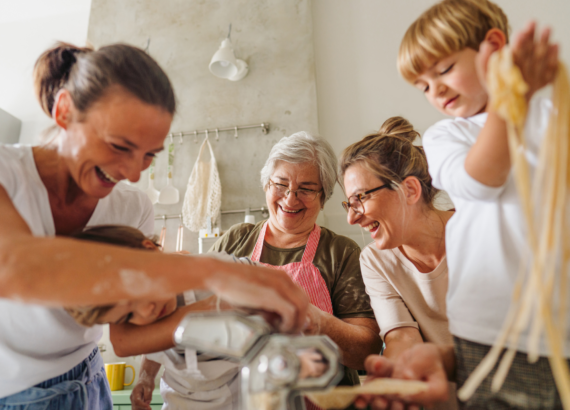The Lost Art of Mentorship: How Parents Can Reclaim Their Role in Raising Citizens
ForrestOakSH |
One of my most cherished childhood memories is sitting beside my Granny, shelling beans freshly picked from her garden and helping her prepare them for canning. We didn’t call it learning, but that’s exactly what it was—side-by-side mentorship passed down through generations. For centuries, this is how children grew into capable, grounded adults: organically, on farms and in trades, during daily chores, or while listening to stories around the fire at night.
Grandparents, aunts, uncles, and older siblings all played a part. Small communities raised children with shared values, and modeled what it meant to be responsible citizens—honest work, helping neighbors, showing up, and doing the right thing when no one was watching.
But somewhere along the way, we drifted.
Industrialization, public schooling, and youth programs gradually replaced the natural rhythms of home-centered mentorship. Learning shifted from lap to lecture hall, from kitchen to classroom. What was once passed down in the quiet dailiness of family life is now outsourced to institutions. Though modern systems brought many benefits, they also ushered in a deep disconnection from each other, from our roots, and from the very idea that parents are a child’s most essential guides.
When Home Was the Classroom

There was a time when homeschool wasn’t a buzzword—it was a way of life. The home was the original classroom. Children learned how to live by watching and doing. No curriculum. Just life.
Boys learned skills and trades by working alongside their fathers, grandfathers, and uncles. Girls learned how to care for a home and nurture others by shadowing their mothers and grandmothers. Family trades and household skills were considered treasured inheritances. Recipes weren’t just for cooking—they were for preserving culture, memory, and love.
Everyone had a role. Everyone had a purpose. And everyone belonged.
The High Cost of Outsourcing Mentorship
As families grew busier and more fragmented, we began to rely on systems to do the work of shaping hearts and minds. But character can’t be mass-produced.
Today, we see the effects: a decline in virtue, perseverance, and personal responsibility. Children struggle to define who they are because they’re cut off from the stories and traditions that once anchored them. In the absence of family identity, many grasp for labels handed out by culture—shiny, shallow substitutes for rooted belonging.
We also see a generation growing up civically disengaged. Many kids don’t understand how their country works, why voting matters, or what it means to serve a community. Fewer teens are learning to work hard, help at home, or shoulder adult responsibilities—and it shows.
Reclaiming Our God-Given Role

It’s time for us to step back into our role—not just as caregivers, but as mentors.
Invite your children into your world. Let them help with budgeting, car maintenance, meal prep, or community service. Let them listen in on grown-up conversations at the dinner table—about faith, politics, history, and values.
Model what it means to live with purpose. Talk to them about the “why” behind your choices. Let them see you fail, recover, and persevere. Teach them your family’s story. Tell them about their great-grandparents, about your first job, about the moments that shaped your convictions.
Bring back the spirit of apprenticeship. Let them walk beside you. That’s where the deepest learning happens.
Practical Ways to Start Today
- Look for daily “mentor moments”—simple windows to include, explain, and invite.
- Choose books and media that reinforce the values you want to pass down.
- Spend intentional time with grandparents and trusted older adults.
- Let your child help with meaningful tasks—not just chores.
- Build a weekly rhythm: a shared meal, a service project, a civic discussion.
Lead the Way
Raising good citizens doesn’t start at the ballot box or in a textbook. It starts in the home- in the quiet, consistent rhythms of real life shared.
Let’s trade screen time for story time. Busyness for presence. Fear for confidence. Let’s reclaim what was never meant to be lost.
Our children are watching—and we were made to lead.






